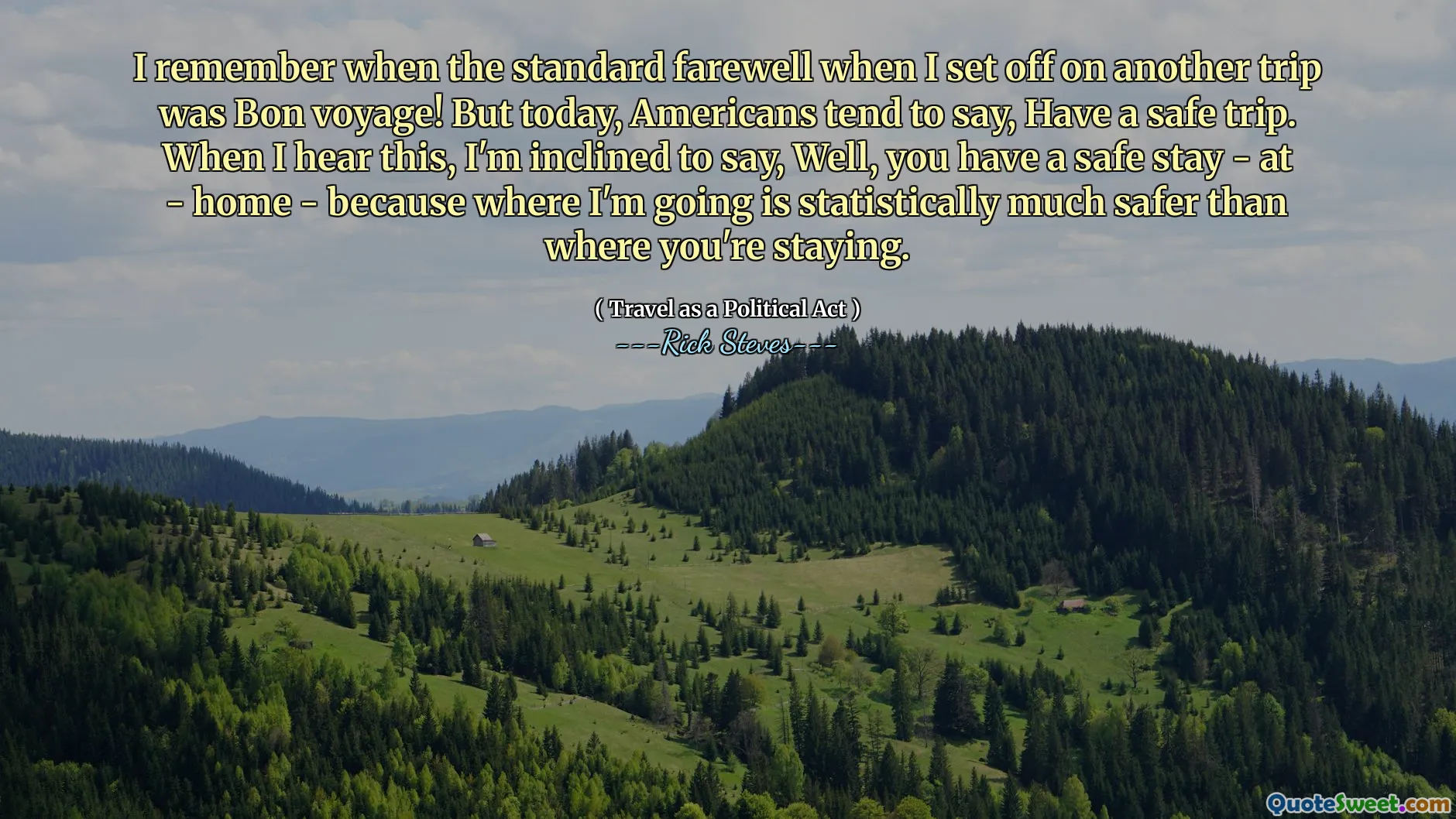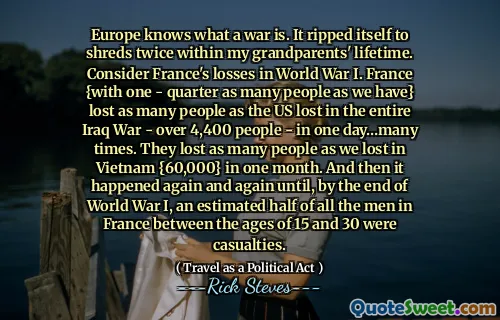
I remember when the standard farewell when I set off on another trip was Bon voyage! But today, Americans tend to say, Have a safe trip. When I hear this, I'm inclined to say, Well, you have a safe stay - at - home - because where I'm going is statistically much safer than where you're staying.
The quote highlights a subtle yet profound shift in how travel is perceived culturally, especially in the United States. The traditional phrase "Bon voyage" — literally "good journey" — carries a deep sense of adventure, discovery, and goodwill towards the traveler, suggesting that the journey itself is an enriching experience worth celebrating. In contrast, the contemporary phrase "Have a safe trip" reveals a growing preoccupation with security and caution, which might reflect broader societal anxieties about the world being an increasingly dangerous place.
Rick Steves' tongue-in-cheek retort challenges this conventional wisdom by flipping the concern on its head—pointing out that the supposedly risky or unknown destinations we often choose are statistically safer than familiar territories we don’t leave behind. This perspective invites readers to reconsider fears that might be limiting their desire to explore and emphasizes the value of travel not only as an act of leisure but as a means to question assumptions and broaden one's worldview.
From a political standpoint, travel can be a radical act. It forces us out of comfortable bubbles and compels us to engage with diverse cultures, ideas, and circumstances. It can undermine stereotypes and foster empathy. Yet the cautious phrase "Have a safe trip" might reflect a society hesitant to embrace the discomfort and unpredictability inherent to genuine exploration. By recognizing this, the quote encourages travelers to cultivate courage and curiosity, seeing travel not just as a safe escape but a meaningful form of engagement with the world. Ultimately, Steves invites us to challenge not just our travel habits but also deeper perceptions about safety, risk, and what it means to be truly at home in the world.







